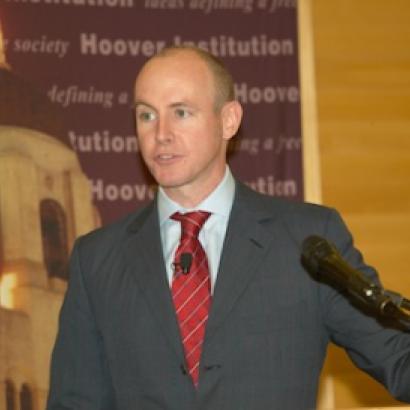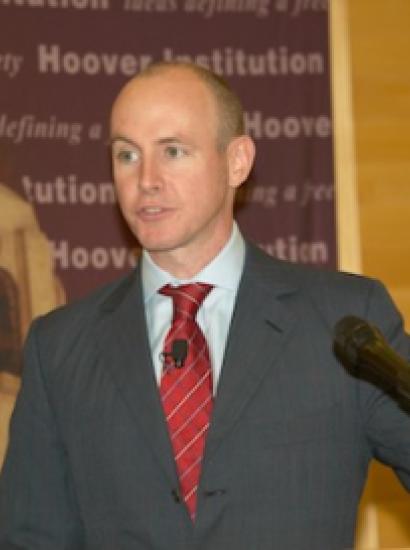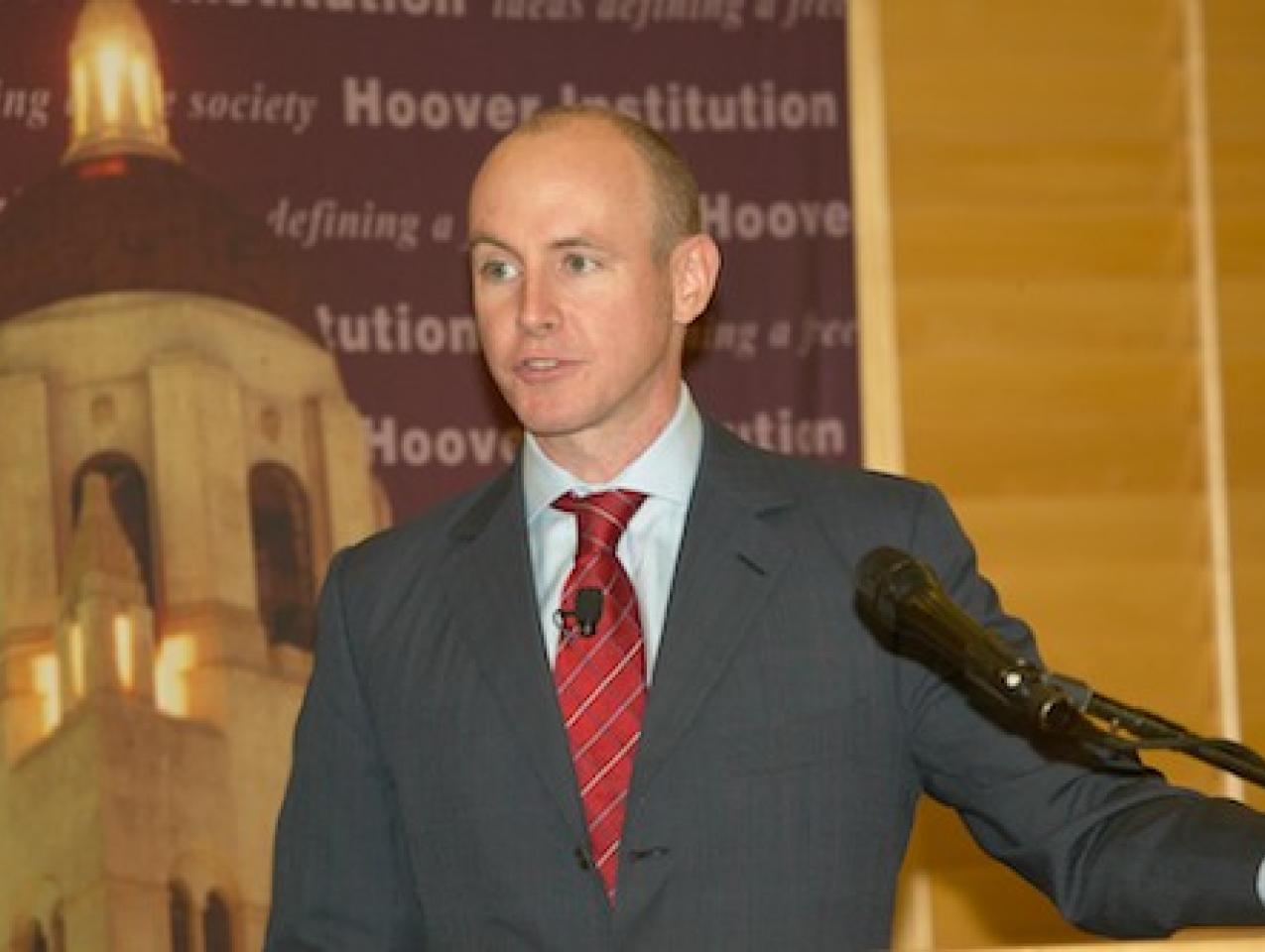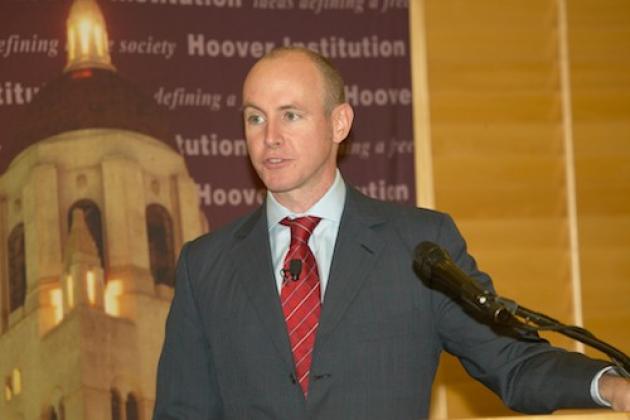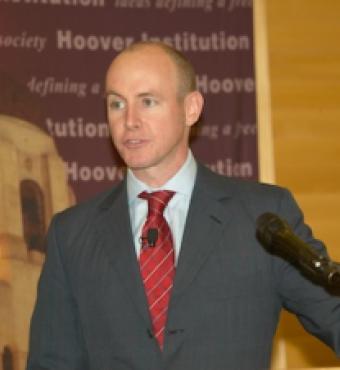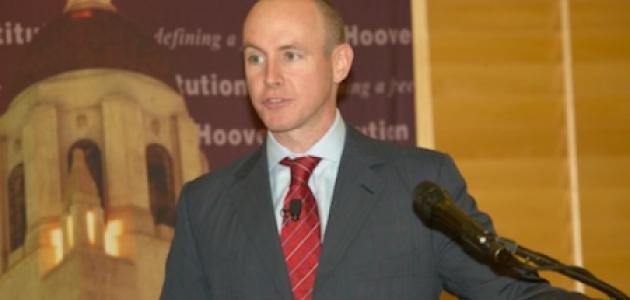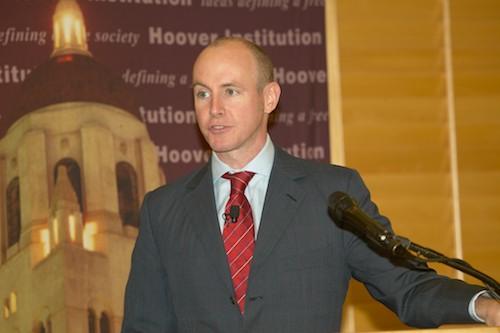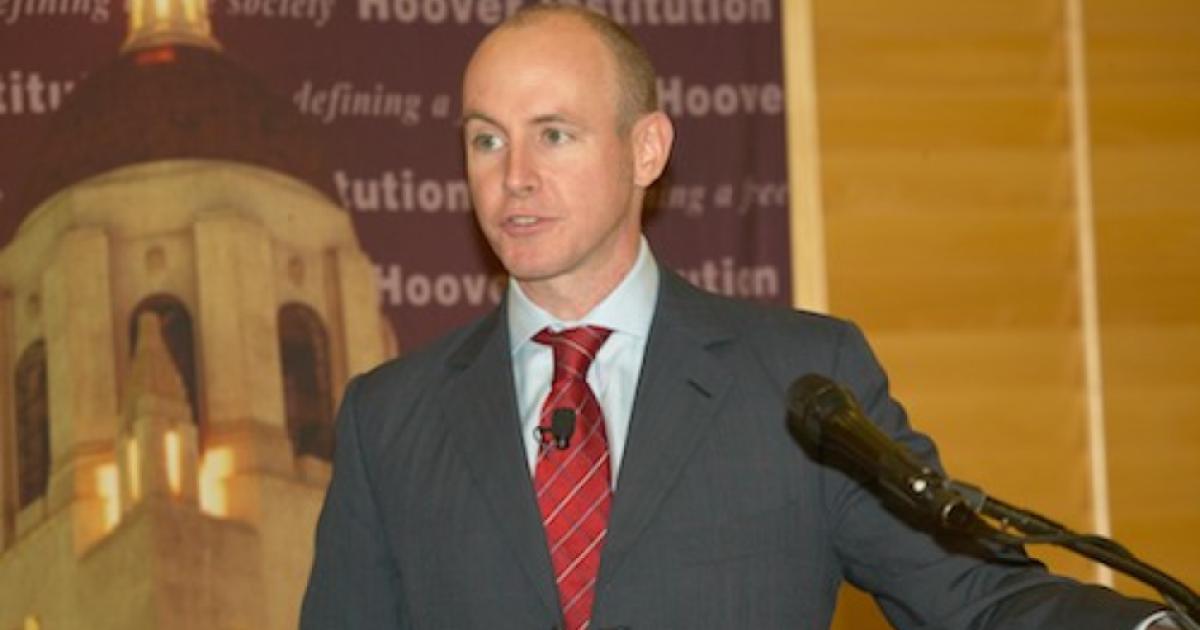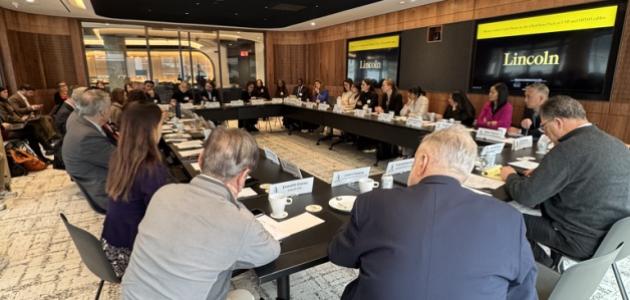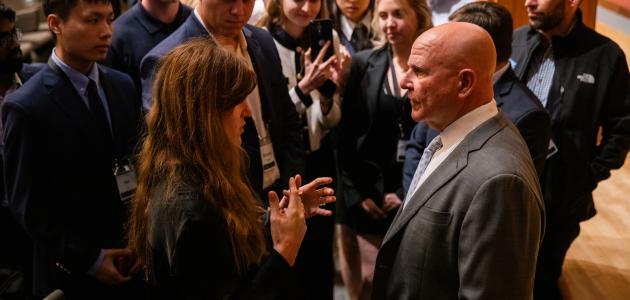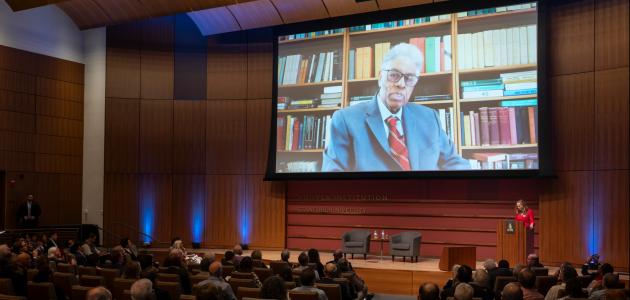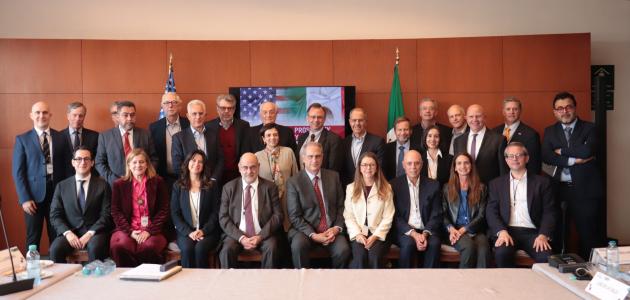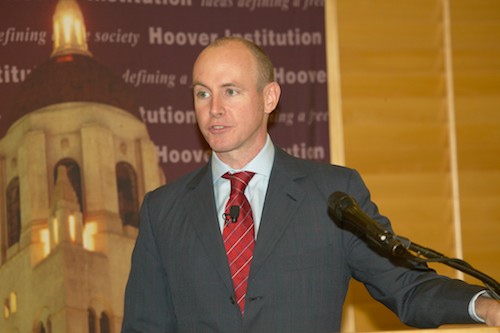
British author and journalist Daniel Hannan, a member of the European Parliament, had strong words of warning about the political and economic future of America for the audience that filled McCaw Hall in the Stanford Alumni Center at the opening dinner of the Hoover Institution’s retreat on Sunday, October 17. Comparing himself to a character from an H.G.Wells novel who has traveled from the future to warn others of what is to come, “I’m living in your future and you’re not going to enjoy it.”
A former president of the Oxford University Conservative Association, Hannan was elected in 1999 as a Conservative member of the European Parliament representing South East England and subsequently reelected twice. In his remarks, Hannan advised against the European-style socialism he sees being implemented in the United States. His most recent book is The New Road to Serfdom: A Letter of Warning to America (Harper, an imprint of HarperCollins Publishers, 2010).
Economic policy and the fiscal crisis were discussed by Hoover fellows Russell Roberts and Michael McConnell and guest speaker Arnold Kling in their talks during the retreat. In an impassioned presentation, Roberts, who is also a professor of economics and the J. Fish and Lillian F. Smith Distinguished Scholar at the Mercatus Center at George Mason University, argued, in his presentation, “Making the Case for Smaller Government: Reclaiming the Moral High Ground,” that conservatives need to do more to promote the benefits of limited government and economic freedom.
What does the Constitution have to do with the fiscal crisis? Constitutional scholar Michael McConnell, Hoover senior fellow and the Frances Mallery Professor of Law at the Stanford Law School, described the founding fathers struggles with establishing sound fiscal policy in “Fiscal Crisis: Lessons from the American Founding.” McConnell pointed out that the 1787 Constitutional Convention was held to address the failing fortunes of the recently established country. The first secretary of the U.S. Treasury, Alexander Hamilton, used the stability of the English financial system to develop a plan that enabled the United States to restore its financial standing. Noting that although Hamilton believed a properly managed debt could be a benefit, McConnell warned that the current national debt, standing at 62 per cent of GDP and growing, has some creditors viewing the United States as a risk.
In Arnold Klings’s presentation, drawn from his book Unchecked and Unbalanced: How the Discrepancy between Knowledge and Power Caused the Financial Crisis and Threatens Democracy, he discussed what he sees as a growing problem: knowledge becoming more diffuse and political power becoming more concentrated. Kling, an economist on the staff of the Board of Governors of the Federal Reserve System from 1980 to 1986 and a senior economist at Freddie Mac from 1986 to 1994, presented ways in which a competitive government should address the concerns of our postindustrial age, including unbundling government services; competition among government service providers; basing services on a network, not territorial, basis; and taxpayers’ allocating their money for services.
Foreign policy was discussed by Victor Davis Hanson, the Martin and Illie Anderson Senior Fellow at the Hoover Institution and a professor of classics emeritus at California State University, Fresno, in his talk “Back to the Future: The New World Order.” Hanson was critical of the policy directions pursued by the Obama administration, which he cautions are detrimental to the interests of the United States and its allies.
In addition to the speakers above, breakout sessions featured the following Hoover fellows, and their topics: Stephen Haber, the Peter and Helen Bing Senior Fellow at the Hoover Institution, on “The Mexican Drug War: Implications for the United States”; Robert Hall, the Robert and Carole McNeil Senior Fellow, on “Why Is Unemployment So High and Long Lasting?”; Kenneth Jowitt, the Pres and Maurine Hotchkis Senior Fellow, on “American Exceptionalism: From George Washington to Barack Obama?”; Scott Atlas, Hoover senior fellow, on “America's Health Care: Ignored Facts and Disregarded Options“; Thomas Henriksen, Hoover senior fellow, on “What Can Happen in Afghanistan”; Terry Moe, Hoover senior fellow, on “Technology and the Future of American Education”; Abbas Milani, Hoover research fellow, on “The Myth of the Great Satan: The Future of U.S.-Iran Relations”; and Kenneth Scott, Hoover senior research fellow, on “The Financial Crisis: Causes and Lessons.”







